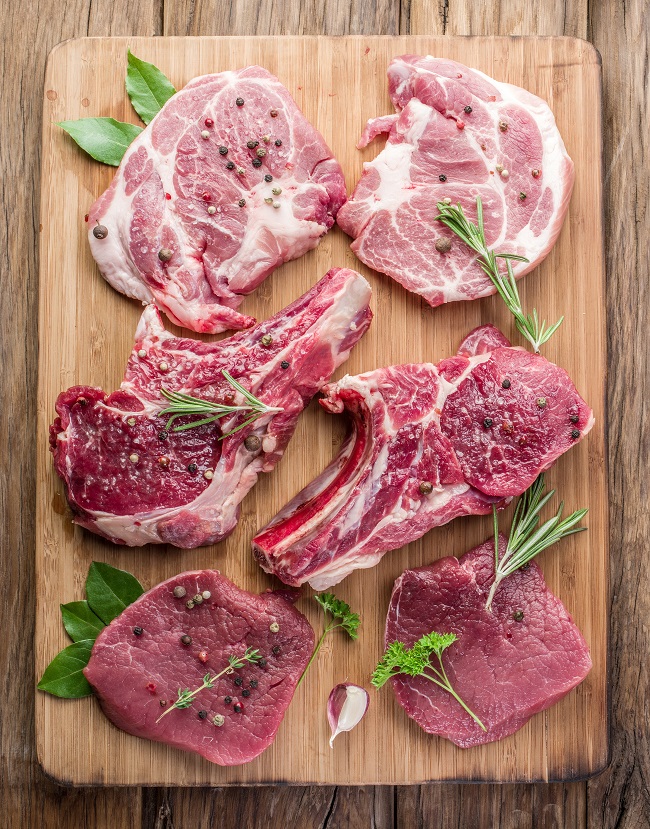
Visit our other sites
-
Fapas - Proficiency Testing
Globally recognised provider of proficiency tests, running over 400 tests annually across an extensive range of matrices and analytes
-
Great Crested Newts Testing
A single sample taken by an ecologist at any time during the newt breeding season can determine their presence or absence, saving you time and money
- Fera is the UK National Reference Laboratory for Halogenated Persistent Organic Pollutants (POPs) in Feed and Food.
- Contact Us

Halogenated Persistent Organic Pollutants (POPs), contaminants found in food and feed, are a group of toxic and persistent chemicals whose effects on human health include dermal toxicity, immunotoxicity, reproductive effects and teratogenicity, endocrine disruption and carcinogenicity. The environmental presence of these substances coupled with several accidents (e.g. Yusho (Japan), Yucheng (Taiwan), Seveso (Italy) have triggered a deep concern from the international community for their reduction and control. Moreover, there is considerable public, scientific and regulatory concern over the negative effects on human health and on biota in the environment of long-term exposure to even the smallest amounts of Halogenated Persistent Organic Pollutants (POPs).
Analytical chemistry is used to support collaborative studies of environmental pathways of toxic chemicals, fundamental aspects of toxicology and health and an emergency and contingency response. Given the growing importance of chlorinated persistent contaminants other than PCBs and dioxins, of brominated and fluorinated persistent contaminants for the safety of feed and food, the scope of the EU reference laboratory (EURL) for dioxins and PCBs in feed and food was extended to all halogenated persistent organic pollutants (POPs) in feed and food in 2018. Therefore the EU reference laboratory for dioxins and PCBs in feed and food was renamed as EU reference laboratory for halogenated persistent organic pollutants (POPs) in feed and food to reflect this extension of scope (Commission Regulation (EU) 2018/192). The tasks of EURLs are defined by Regulation (EU) 2017/625 of the European Parliament and of the Council.

EU-RL Halogenated Persistent Organic Pollutants (POPs) in Feed and Food
The EU-RL for Halogenated Persistent Organic Pollutants (POPs) in Feed and Food aims to facilitate the implementation of European legislation related to monitoring of Halogenated Persistent Organic Pollutants (POPs) in Feed and Food. Under Regulation (EC) No. 2017/625 the European Union Reference Laboratory (EU-RL) for Halogenated Persistent Organic Pollutants (POPs) in Feed and Food is hosted by State Institute for Chemical and Veterinary Analysis of Food - Freiburg, Germany (Chemisches und Veterinäruntersuchungs-amt, CVUA) which is one of the official food control and animal health laboratories in Baden-Wuerttemberg, Germany.
EU-RL Halogenated Persistent Organic Pollutants (POPs) in Feed and Food
Over the past two decades the Commission has proposed wide ranging legislation aimed at directly or indirectly reducing the release of these compounds into the environment (many of which are targeted by the Stockholm Convention for elimination/reduction of production and of release into the environment), with the objective of reducing human exposure and protecting human health and the environment. Recent exposure data show that measures introduced to control dioxin releases have resulted in a substantial reduction in intake of these compounds: levels in humans are decreasing since the mid eighties. Since 1995 this tendency is levelling out, even slightly rising levels have been observed for some contaminants.
The Contaminants in Food (England) Regulations 2013 make enforcement measures provision for European Commission Regulation (EC) No 1881/2006, setting maximum levels for certain contaminants in foodstuffs and prescribes the methods to be used for sampling and analysis for enforcement purposes. There are similar Regulations for Scotland, Wales and Northern Ireland.
Copies of the EU Regulations, and those of England, Scotland, Northern Ireland and Wales are available from the Food Standards Agency.
Regulation (EC) No. 776/2006 nominates the State Institute for Chemical and Veterinary Analysis of Food - Freiburg, Germany as the European Union Reference Laboratory (EU-RL) for Halogenated Persistent Organic Pollutants (POPs) in Feed and Food.
Competent Authority
Food Standards Agency (FSA)
The Food Standards Agency (FSA) is designated as Competent Authority for the purposes of Regulation (EC) No. 882/2004 on Official Feed and Food Controls in the UK.
FSA Legislation for importing food
Food which is intended for human consumption must meet the general food safety requirements of European Union (EU) law. Under Regulation (EC) No 178/2002 these requirements are that food must not be unsafe, i.e.:
- injurious to health
- unfit for human consumption
Directorate General Health and Consumers
DG Health and Consumers ensures that food and consumer goods sold in the EU are safe, that the EU's internal market works for the benefit of consumers and that Europe helps protect and improve its citizens' health. Work is in collaboration with other EU Institutions, national governments and agencies, consumer organisations, health interest groups, business groups, scientists, researchers and experts.
DG Health and Consumers Food Contaminants - Dioxins and PCBs has information summarising Halogenated Persistent Organic Pollutants (POPs) EU Legislation for food and feed.
Guidelines for the Enforcement of Provisions on Halogenated Persistent Organic Pollutants (POPs) in the Event Non-Compliance with the Maximum Levels for Dioxins in Food have been produced by DG Health and Consumers (DG SANCO).

Learn More
To speak with us about this service, or for any other services, please contact us below, or phone our experts on:
+44 (0)300 100 0323

Copyright © 2025 Fera Science Limited (“Fera”). All rights reserved.
For further information about how Fera uses any personal data collected from you, please see our Privacy Notice at www.fera.co.uk/privacy-policy.


